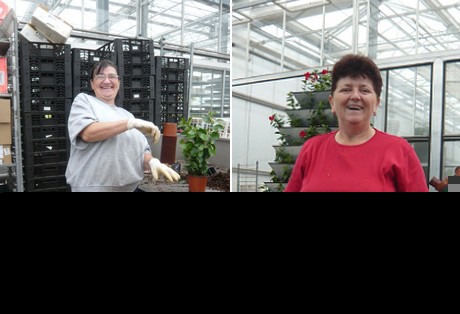State's own wages
As of July 2015, the federal government mandates a nationwide minimum wage level of $7.25 per hour. However, every State and some city's have the liberty to set their own minimum wage, as long as it is no less than $7.25 per hour. "Where I live, in New Hampshire, for example, the minimum wage is the same as the national minimum wage, but the market conditions drive it well above the mandated $7.25. Although it may sound quite conservative, we feel that in our state the employer and the employee work without government intervention to create wages that work. You can see that in our low unemployment rate", says Doug Cole, owner of D.S. Cole, a large grower of vegetative annual plants, and board member of SAF. "In California, however, the minimum wage is $10 per hour. Under existing law it increases to $11.00 per hour, effective January 1, 2017, and by $1.00 each of the next four years, to $15.00 per hour on January 1, 2021", explains Drew Gruenburg, Chief Operating Officer at SAF. "And as many flowers are being cultivated in California, the growers in this area are suffering the most", adds Cole.

Serbian employees working in the greenhouse of D.S. Cole.
Increasing costs
These high wages are increasing the costs of the Californian growers. According to Cole, raising the wage of the low-paid jobs ends up in giving everyone a raise. "A US company usually exists of hierarchical layers. If the lowest level of this hierarchy receives a raise, the employees from the upper layers will ask for a raise too. In the end, it will cost the grower a lot of money", he says.
Shrinking employment pool
Besides that, the California flower growers also have to deal with a shrinking employment pool. The so-called piece-work, work paid according to the amount produced, leaves jobs unfilled at the ornamental farms. "A good strawberry picker, for example, can earn $15 to $24 per hour instead of $12 when harvesting flowers, so why would he choose to pick flowers", says Cole.
And not only in California is it hard to get people, also in the rest of the USA. "The news media claims that job growth is stagnant, not enough jobs are being created and the immigrants are taking jobs away. We see this differently. It is difficult to get qualified people for middle management and supervisory positions. Since the economy got stronger after the crisis, the employment pool is shrinking. The unemployment is low at the moment, around 3 percent in our area, which makes it hard to find the right, skilled, person for the job", says Cole.
The small employment pool also causes competition throughout the horticulture sector in the US, including for example Michigan. "In this state, many greenhouses are being build for the cultivation of vegetables and they are all looking for workers. In other states the Cannabis operations thin out the skilled horticulture labor force. In turn, less workers will be left for the ornamental growers", says Cole.
Dealing with it
How are growers dealing with this development? "First of all, the growers are frustrated, but they have to do something", says Cole. "Some growers decided not to expand their product range and some landscape companies decided to do less projects. But growers are definitely not going backwards. At D.S. Cole, for example, we recently added another acre to our facility. However, I have to say that we, in our area, are fortunate to have a pool of refugees such as those that came from Bosnia and Serbia. That group has now moved on and we have a good size group of Bhutanese and African refugees. They like the work and they are good workers. Who knows how long this will last. We may see some Syrian refugees. We may not. It depends on politics. In generals, as growers, we always have something to gripe about and at the moment it is labor. We can automate, pay more and/or work harder with our current staff”, concludes Cole.
For more information
Society of American Florists
Doug Cole
Email: [email protected]
Drew Gruenburg
Email: [email protected]
www.saf.com
